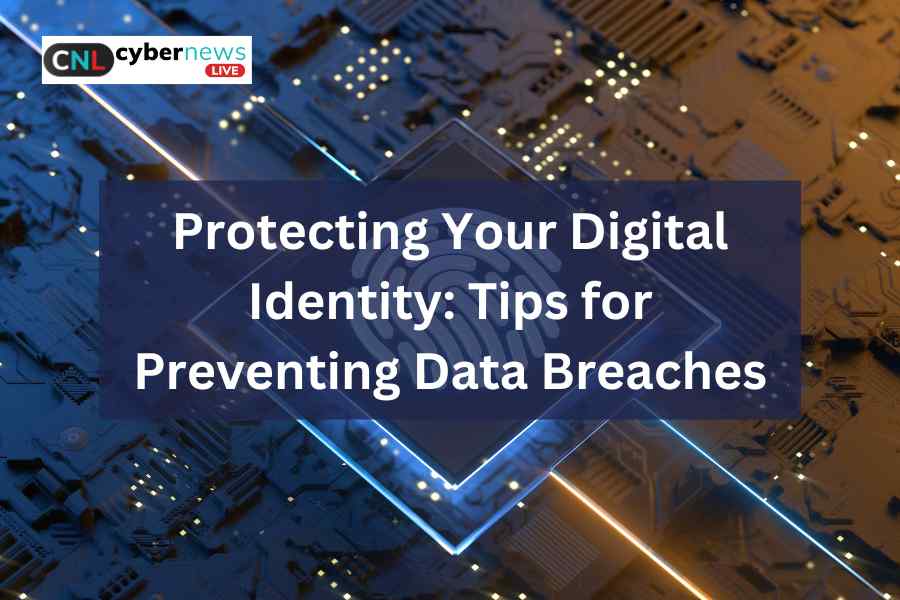

Protecting Your Digital Identity: Top Tips to Prevent Data Breaches
Protecting your digital identity is more crucial than ever. Cybercriminals are constantly seeking ways to steal personal data, which can lead to identity theft and financial loss. This guide will help you understand what a data breach is, how to detect one, and the best strategies to safeguard your digital identity.
What Is a Data Breach?
A data breach occurs when unauthorized individuals access sensitive data from a company, website, or personal device. This stolen information can include names, addresses, passwords, financial details, and other personal data. Cybercriminals exploit these breaches to commit fraud, identity theft, or sell your data on the dark web.
How to Check If Your Data Has Been Breached
Worried that your information might be compromised? Here’s how to find out:
- Check for Official Notifications – Companies often inform customers about security breaches through emails or public notices.
- Use Data Breach Checkers – Websites like Have I Been Pwned let you check if your email or password has been exposed in a breach.
- Monitor Your Accounts – Keep an eye on your bank statements and credit reports for any unauthorized transactions.
- Enable Account Alerts – Activate notifications for login attempts or unusual activity on your accounts.
- Change Passwords Regularly – If you suspect a breach, update your passwords immediately.
- Use Two-Factor Authentication (2FA) – Add an extra layer of security by requiring a verification code in addition to your password.
- Beware of Phishing Scams – Cybercriminals may send fake emails pretending to be a breached company, attempting to steal more information.
- Contact Customer Support – If you suspect a breach, reach out to the company to confirm and get guidance on securing your data.
Best Tips to Prevent Data Breaches
Follow these security tips to protect your online identity and prevent cyber threats:
1. Use Strong, Unique Passwords
Your password is your first line of defense. Use a mix of uppercase and lowercase letters, numbers, and special characters. Avoid using common words, names, or easily guessed phrases.
2. Change Passwords Regularly
Hackers can obtain passwords over time. Change them frequently and never reuse the same password across multiple accounts.
3. Enable Two-Factor Authentication (2FA)
Adding 2FA strengthens security by requiring a secondary form of verification, such as a code sent to your phone or email.
4. Beware of Phishing Emails
Cybercriminals use fake emails to trick you into revealing personal data. Verify the sender and avoid clicking on suspicious links.
5. Keep Software and Devices Updated
Regular updates fix security vulnerabilities. Enable automatic updates on your operating system, apps, and antivirus software.
6. Avoid Public Wi-Fi for Sensitive Transactions
Public Wi-Fi networks are vulnerable to hackers. If you must use them, connect through a VPN (Virtual Private Network) for added security.
7. Verify Websites Before Entering Personal Data
Scammers create fake websites that look like legitimate ones. Always check the URL and ensure it starts with https:// before entering sensitive information.
8. Limit the Personal Information You Share Online
Oversharing personal details on social media can make you a target for identity theft. Adjust your privacy settings and be mindful of what you post.
9. Secure Your Devices
Use strong passwords, PINs, or biometric authentication (fingerprint or facial recognition) on your smartphones, tablets, and computers. If your device is lost or stolen, this can prevent unauthorized access.
10. Educate Yourself About Cyber Threats
Stay informed about the latest cybersecurity threats and scams. Knowledge is power when it comes to protecting your digital identity.
Final Thoughts
Protecting your digital identity is just as important as securing your home. By following these essential tips, you can significantly reduce the risk of a data breach and keep your personal information safe.
For the latest cybersecurity news and data breach reports, visit Cyber News Live. Stay informed, stay secure, and take control of your digital safety today!
